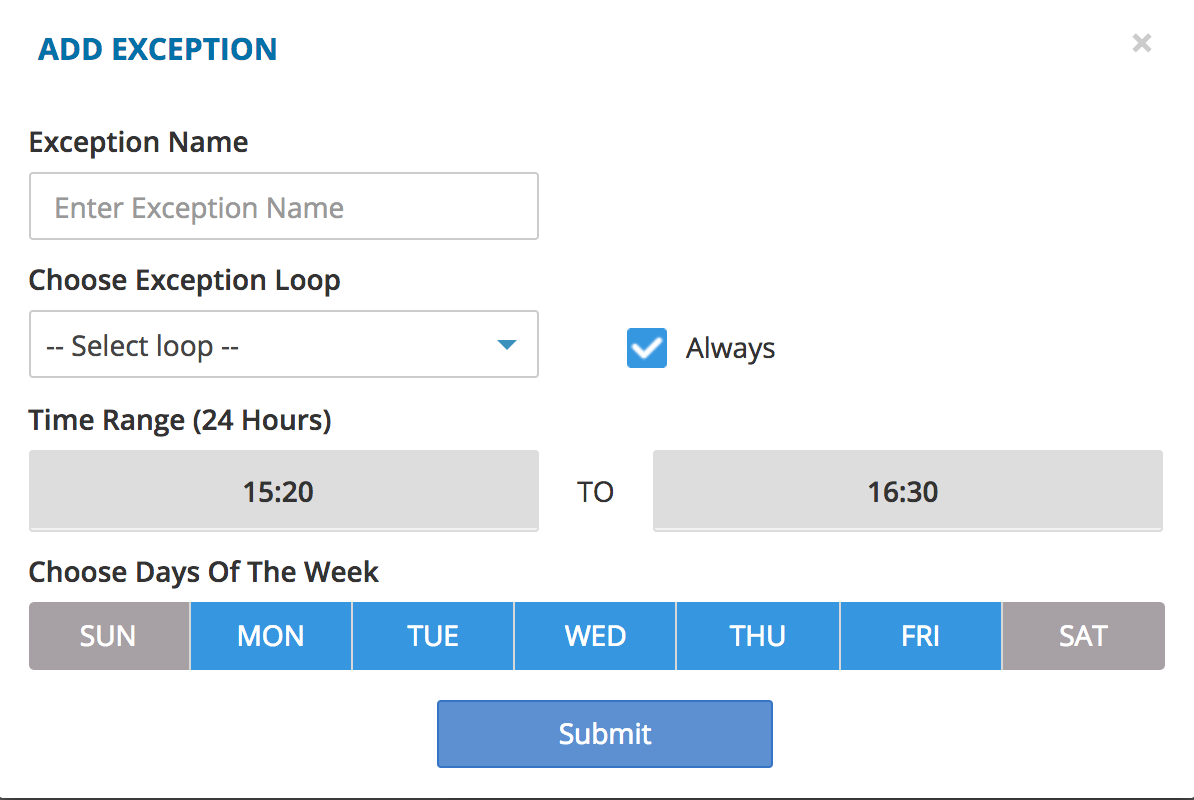Once you have your Main Loop chosen, you can now start to scope out specific time slots for other loops to play. We call these "Exceptions".

For example, you run a small coffee shop. Typically you want to bring attention to a few general items such as your Latte, Pre-made Sandwiches, and Deserts. But there are a few opportunities you want to capitalize on:
- You're located next to a high-school, and find that you get more students walking by between 3:20 PM and 4:30 PM.
- You find that more people tend to come in for lunch.
You can capitalize on these opportunities by creating a loop for each scenario. For the students that walk-by, you can create a loop targetting them by offering a "Student Special". For the lunch rush, you can create a loop that focuses on lattes, americanos, and espressos, and not waste valuable space/time advertising sandwiches, since that's what they're already here to buy.
Multiple Loops
Now you have 3 different loops.
- Main Loop: focusing on all the variety of products you offer.
- Student Loop: focusing on the student specials
- Lunch Loop: focusing on the lunch crowd already in to buy sandwiches

Campaigns let you easily run all 3 loops on the same player. You can set your Main Loop to always play except on Mondays through Sundays, from 11:30 AM to 1:00 PM, where instead of the Main Loop, it will play the Lunch Loop. You can also set a second exception to play the Student Loop from 3:20 PM to 4:30 PM.

You can create as many exceptions as you'd like, and create as specific a campaign as possible. Once you've created the campaign, you can set as many players as you'd like to follow that campaign.
Exception Overlap
In the case that you have two exceptions that overlap, you can order them top to bottom in terms of what's more important. The exception on top will always take precedence over the exception on the bottom.
